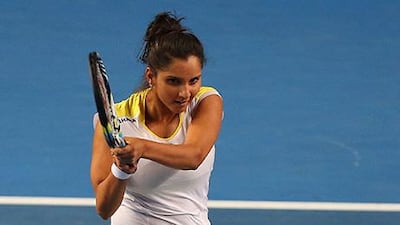How do you and Cara Black work so well together?
“We are opposite players to each other and I think that’s the most important thing. I mean I hit the ball very hard and flat while she has extremely crafty hands. She is very good around the net and I’m very good around the back. Our personalities match and we are very good friends.”
Why did you not partner with Black earlier?
“The last time I asked her to play she decided to have a baby instead and she retired. So when she came back I really just had to nab her and I think that has really worked well. The only time [in the last nine matches] we have played badly was the first set of the first match and from there we’ve just kept improving.”
You are missing out on the season-ending WTA Tour championships.
“Yes, I am disappointed to miss out on the championships. But you have to understand that it’s not entirely in my control. I won five tournaments but with three different partners this season and if I would have done that with one person I would be playing in that championship. But that’s the way it is and you have to accept it.”
What are your targets for the next season?
“I don’t know if this is the best shape I’ve been in, but I’m in good shape and playing better because for the last couple of years I have had no major injuries. I just want to try and be as fit and stay healthy as much as possible. I have not set any goals as of now but our next aim is to win grand slams together.”
What’s next?
“I plan to take three weeks off and not try to touch my racket at all. I will start training after that. I came back here [to the UAE] on Sunday from Beijing and literally I have been on the go since. I’m here now and finally get some time off and go out on a holiday.”
osamiuddin@thenational.ae

